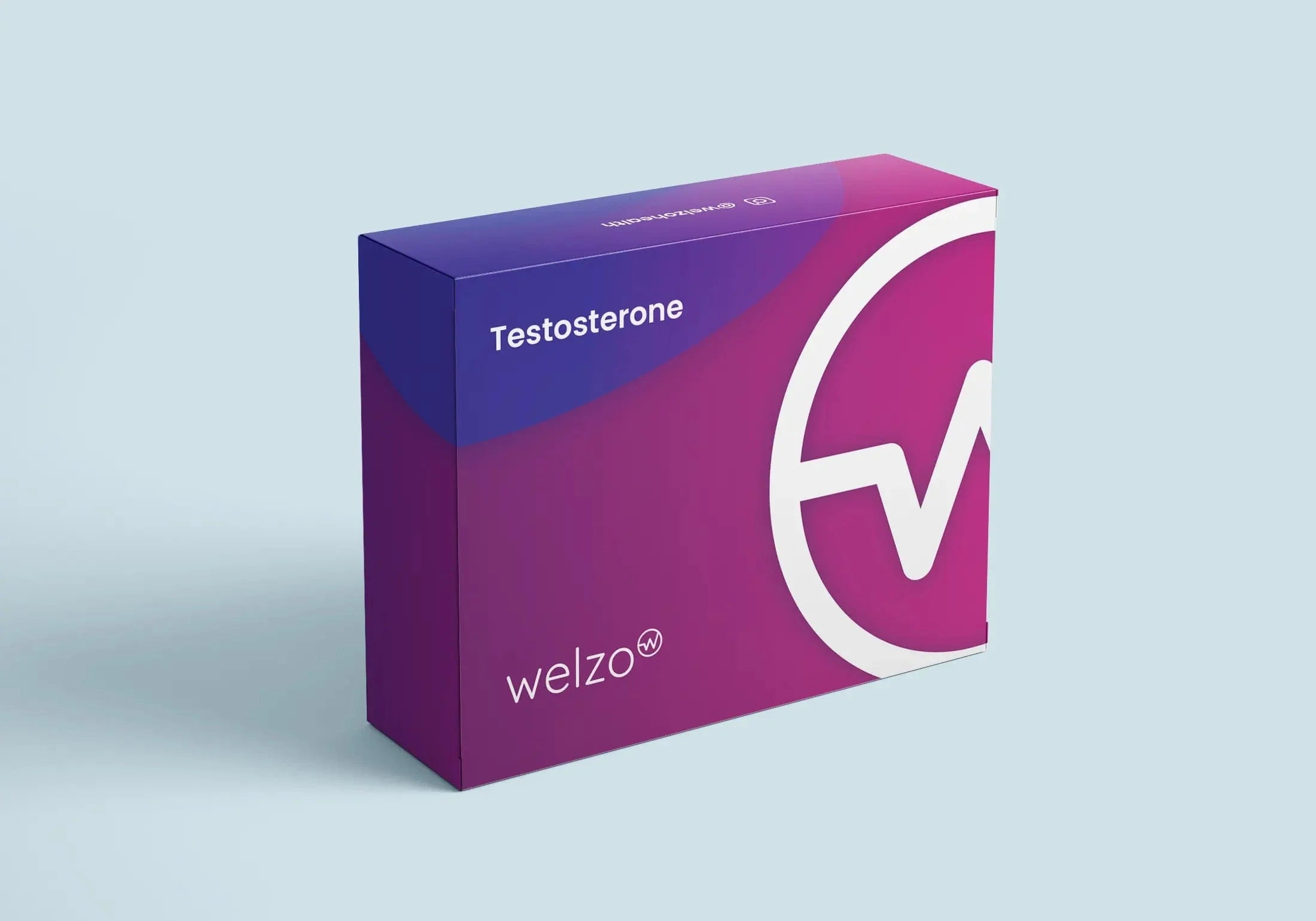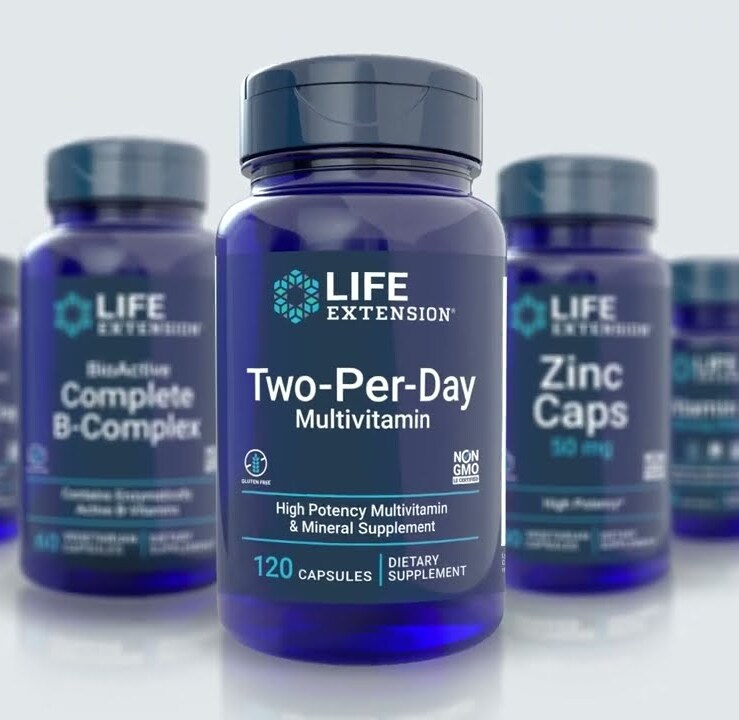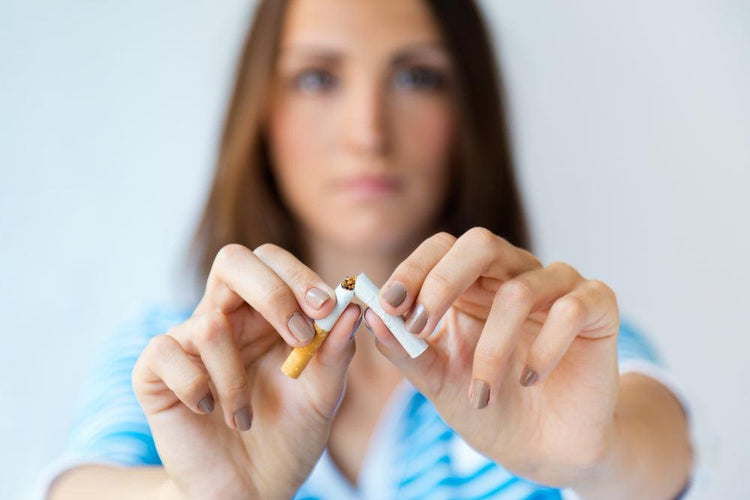High Testosterone Levels in Women: Causes, Symptoms and Treatments

Related products
What is High Testosterone in Women and Why is it a Concern?
High Testosterone Levels
High testosterone levels in women is the first step towards understanding its ramifications. Testosterone is often misconceived as a hormone solely tied to men, but it plays a vital role in women as well. In the female body, testosterone is produced in the ovaries and adrenal glands. Normal testosterone levels typically range from 15 to 70 nanograms per decilitre (ng/dL). However, when the levels surpass the upper limit, we refer to this condition as "high testosterone."
"A slight fluctuation in hormone levels can be considered normal; however, consistently high levels require attention," says Dr. Emily Walters, an endocrinologist based in London. This is particularly true because abnormally high testosterone levels can signify an underlying medical condition or hormonal imbalance.
The Role of Testosterone in Women
The role of testosterone in women is multifaceted and crucial for physiological and psychological well-being. It aids in the growth and repair of reproductive tissues and bone mass, regulates mood, maintains libido, and even has an impact on cognitive abilities. Moreover, testosterone assists in the distribution of fat and muscle mass, contributing to a woman's overall physique.
"Testosterone not only affects physical attributes but also significantly influences behavioural aspects such as aggression, competitiveness, and risk-taking tendencies", states Elaine Peterson, a psychology researcher at the University of Oxford. This underscores the complexity of the hormone’s role, making it even more critical to maintain it within normal ranges.
Why Elevated Levels May Be a Concern
Elevated levels of testosterone in women can indeed be a cause for concern. Excess testosterone may lead to a range of health issues, including but not limited to, infertility, menstrual irregularities, and even the development of male-pattern hair growth (hirsutism). Furthermore, high testosterone can increase the risk of developing metabolic syndromes like obesity and diabetes.
"The long-term effects of high testosterone can significantly impair a woman’s quality of life. It can also be a marker for severe health disorders such as cancer or cardiovascular diseases," warns Dr. Lucy Harrison, a consultant in hormone disorders.
What Are the Normal Levels of Testosterone in Women?
Age-Related Norms
Normal levels of testosterone in women vary significantly throughout their lifetime. Generally, a range between 15 to 70 ng/dL is considered standard for adult women. However, these values can differ according to age. For example, testosterone levels peak during a woman’s twenties and gradually decline thereafter.
"Age plays a significant role in the natural ebb and flow of testosterone. Post-menopause, most women experience a drastic drop," observes Dr. Karen Clark, a gynaecologist specialising in hormonal treatments.
Fluctuations During the Menstrual Cycle
Testosterone levels in women also fluctuate during the menstrual cycle. They generally peak around the time of ovulation, providing a boost in libido and overall energy. "This natural rise and fall is often more pronounced in younger women and tends to diminish as one approaches menopause," says Dr. Sandra Wilson, a researcher in women’s hormonal health.
The phenomenon of cyclical testosterone changes brings another layer of complexity to the interpretation of hormone levels, indicating that single measurements may not always give the full picture.
How Do High Levels of Testosterone Manifest in Women?
Physical Symptoms
High levels of testosterone manifest themselves physically in various ways. Symptoms can range from excess body hair, oily skin and acne, to a deepening of the voice. Women may also experience an increase in muscle mass and even male-pattern baldness in severe cases.
"Physical symptoms can be quite distressing and often lead to social stigmatisation," says Dr. Olivia Smith, a dermatologist experienced in treating hormonal skin conditions.
Emotional and Psychological Symptoms
On the emotional and psychological front, elevated testosterone can result in heightened aggression, irritability, and even depression. Many women also report experiencing a sharp decline in their libido, contrary to popular belief that testosterone boosts sexual desire.
"Mental health should not be overlooked when treating high levels of testosterone, as it significantly impacts a woman’s day-to-day life," emphasises Dr. Maria Lewis, a psychiatrist specialising in hormonal imbalances.

Buy Testosterone Blood test online here.
What Causes High Testosterone Levels in Women?
Polycystic Ovary Syndrome (PCOS)
Polycystic Ovary Syndrome, commonly known as PCOS, is one of the most prevalent causes of elevated testosterone levels in women. PCOS is a hormonal disorder affecting one in ten women of childbearing age, characterised by irregular menstrual cycles, and in many cases, excess androgen levels.
"PCOS is often a leading cause of infertility among women, and elevated testosterone is a key culprit," states Dr. Lisa Parker, a fertility specialist.
Congenital Adrenal Hyperplasia
Congenital adrenal hyperplasia is a genetic disorder that leads to abnormal steroid production, including heightened levels of testosterone. "Although rare, this condition can significantly disrupt a woman’s normal physiological processes," says Dr. Ellen Taylor, a geneticist based in Cambridge.
The condition can be diagnosed early in life and requires ongoing treatment to manage symptoms effectively.
Other Hormonal Disorders
Various other hormonal disorders like thyroid dysfunction and adrenal gland disorders can contribute to high testosterone levels. These conditions disrupt the body’s hormonal equilibrium, leading to elevated androgens.
"These hormonal imbalances can sometimes go unnoticed but have far-reaching consequences on a woman’s health", warns Dr. Ruth Williams, an endocrinologist.
Medication Side Effects
Certain medications can result in increased testosterone levels. Steroids, hormonal contraceptives, and even some antidepressants have been known to affect testosterone levels.
"Medication-induced hormonal imbalances are reversible but should be addressed promptly to avoid complications," advises Dr. Emily Johnson, a pharmacologist.
Lifestyle Factors
Lifestyle factors like stress, poor diet, and lack of exercise can also contribute to elevated testosterone. Stress triggers the release of cortisol, which in turn affects other hormonal levels, including testosterone.
"Stress management and lifestyle modifications can go a long way in regulating hormone levels," recommends Dr. Sophia Davis, a healthcare practitioner focusing on holistic health.
Can Menopause Affect Testosterone Levels in Women?
The Hormonal Shift During Menopause
Menopause is often thought of as a time of declining oestrogen levels, but it can also have a dramatic effect on testosterone levels in women. During menopause, the ovaries gradually reduce their production of both oestrogen and testosterone. However, this hormonal shift is not always straightforward.
"Menopause represents a hormonal roller coaster, and while the focus is often on falling oestrogen levels, changes in testosterone are also crucial," explains Dr. Claire Davidson, a gynaecologist specialising in menopausal health.
Studies Linking Menopause to High Testosterone Levels
There have been several studies that suggest menopause can lead to elevated levels of testosterone in some women. In 2020, a study published in the Journal of Endocrinology found that approximately 20% of menopausal women had testosterone levels that were significantly higher than the average for their age group.
"This elevational surge can complicate an already complex hormonal milieu and contribute to various symptoms like mood swings and metabolic changes," says Dr. Anna Smith, an endocrinologist specialising in menopausal health.
How is High Testosterone Diagnosed in Women?
Blood Tests
Diagnosing high testosterone levels in women typically starts with blood tests. These tests can be conducted to measure the total amount of testosterone in the bloodstream, along with other hormones that may be out of balance.
"Blood tests provide a snapshot of hormone levels and are usually the first step in a diagnostic journey," notes Dr. Susan Harris, an endocrinologist.
Hormonal Panels
More comprehensive hormonal panels may also be done to get a detailed look at an individual's hormonal profile. This may include tests for other androgens, as well as hormones like insulin, cortisol, and thyroid hormones.
"A full hormonal panel offers a more complete picture and can help in tailoring the treatment more effectively," advises Dr. Rebecca Lewis, a general practitioner.
Diagnostic Criteria
There are specific diagnostic criteria for high testosterone levels in women, which usually include not just elevated levels detected through tests but also the presence of symptoms like hirsutism, acne, or irregular menstrual cycles.
"Meeting the diagnostic criteria is crucial for appropriate treatment and management of the condition," explains Dr. Daniel Stevens, a healthcare policy expert.
Is High Testosterone in Women Hereditary?
Studies on Hereditary Factors
Is high testosterone in women hereditary? Studies suggest a genetic predisposition could play a role. For instance, a 2019 study in the journal Hormones and Behaviour indicated that there might be hereditary factors involved in elevated testosterone levels.
"Genetic components can't be overlooked when evaluating hormone levels in women," says Dr. Laura Roberts, a genetic researcher.
Familial Patterns
Many healthcare providers have noticed familial patterns where high testosterone appears to run in families. However, this does not eliminate the influence of environmental factors, lifestyle, and other conditions that can also contribute.
"While genetics lay the groundwork, lifestyle and environmental factors often act as triggers," says Dr. Adam Williams, an expert in endocrine disorders.
Can High Testosterone Cause Infertility in Women?
Relationship Between High Testosterone and Ovulation
High testosterone levels in women can impact fertility by affecting ovulation. Elevated testosterone can inhibit the maturation of the ovarian follicles, preventing them from releasing an egg.
"If ovulation is affected, fertility is directly impacted, making conception difficult," asserts Dr. Sarah White, a fertility specialist.
Studies and Research Findings
Several studies have examined the link between high testosterone and infertility. A notable study in the British Journal of Obstetrics and Gynaecology in 2021 found that women with high testosterone levels had a 30% lower rate of conception compared to those with normal levels.
"These findings stress the importance of hormonal balance in fertility outcomes," says Dr. Helen Brown, a reproductive endocrinologist.
Does High Testosterone Cause Weight Gain in Women?
Studies Linking Weight Gain and High Testosterone
Another common query is whether high testosterone levels can cause weight gain in women. A study published in the International Journal of Obesity in 2022 found a correlation between elevated testosterone levels and an increased likelihood of weight gain in women.
"Testosterone plays a role in fat distribution, and elevated levels can lead to weight gain, particularly around the abdomen," states Dr. Emily Adams, a researcher in hormonal imbalances.
Metabolic Factors
The metabolic implications of high testosterone levels are complex. Elevated levels can contribute to insulin resistance, making it more challenging to lose weight and easier to gain it.
"Understanding the metabolic factors at play can help in designing effective weight management strategies for women with high testosterone," suggests Dr. Martin Lewis, a metabolic health expert.
Can High Testosterone Levels Lead to Masculine Features in Women?
Facial Hair Growth and Other Androgenic Effects
One of the most commonly asked questions is whether high testosterone levels can lead to masculine features in women. Indeed, elevated levels of this androgen hormone can cause features typically associated with males, such as facial hair growth. Women may develop what is called 'hirsutism,' characterised by unwanted hair growth in areas like the face, chest, and back.
"Hirsutism can be particularly distressing because of the social emphasis on female hairlessness. It often becomes a huge psychological burden for women," mentions Dr. Sarah Williams, a dermatologist specialising in hormonal imbalances.
Skin Changes
Additionally, high testosterone can lead to significant changes in the skin. These can include excessive oiliness, which contributes to acne and other skin conditions. The texture of the skin can also change, becoming thicker or rougher over time.
"Skin changes due to hormonal imbalances can often be overlooked but are usually one of the first signs to appear," says Dr. Natalie Green, a dermatologist with expertise in hormonal skin conditions.
What Are the Conventional Treatments for High Testosterone in Women?
Hormone Replacement Therapy
One of the most common treatments for high testosterone levels in women is hormone replacement therapy (HRT). This involves the administration of synthetic hormones to balance out elevated testosterone levels.
"HRT is highly effective but should be approached with caution as it comes with its own set of potential side effects," advises Dr. Emma Thompson, an endocrinologist.
Medications
Various medications like anti-androgens and insulin-sensitising drugs can also be prescribed to control elevated testosterone levels. These medications function by either blocking the action of testosterone or by treating the underlying conditions causing the hormonal imbalance.
"Medications are often a first-line treatment and can bring swift relief from symptoms," says Dr. Alice Brown, a healthcare provider specialising in hormonal treatments.
Surgery Options
In extreme cases, surgical intervention may be considered. Ovarian drilling or even removal of the adrenal gland can be options for those who don't respond to medications or HRT.
"Surgical options are typically the last resort and are used only in severe cases," warns Dr. Laura Wilson, a surgeon specialising in endocrine disorders.
Are There Any Natural Remedies to Lower Testosterone Levels in Women?
Dietary Changes
Implementing dietary changes can have a significant impact on testosterone levels. Consuming foods rich in phytoestrogens like soy products, flaxseeds, and whole grains can be beneficial.
"A balanced diet can often mitigate the need for aggressive treatments and should be the first step in managing hormonal imbalances," suggests Dr. Sophia Davis, who focuses on holistic health.
Herbal Remedies
Herbal remedies like spearmint tea and chasteberry have been shown to have anti-androgenic properties. However, these should be used under medical supervision.
"While herbal remedies can be effective, they are not a substitute for medical treatments," cautions Dr. Lily Adams, an expert in herbal medicine.
Exercise and Lifestyle Modifications
Exercise and lifestyle changes like stress reduction can also positively influence hormone levels. Regular physical activity, especially strength training, can help in metabolising excess testosterone.
"Incorporating a good exercise routine and stress management techniques like mindfulness can work wonders," says Dr. Michael Davis, a physiologist.
What Are the Risks and Side Effects of Treatment?
Short-term Side Effects
Short-term side effects of treatments like HRT and medications can include nausea, headaches, and mood swings. These usually subside as the body adjusts to the treatment.
"It's crucial to be aware of the possible side effects and discuss them in detail with your healthcare provider," advises Dr. Emily Harris, a pharmacologist.
Long-term Consequences
Long-term use of treatments like HRT can lead to more serious health risks, including an increased likelihood of breast cancer, heart disease, and stroke.
"Long-term treatments must be continually reassessed to evaluate their risk-to-benefit ratio," warns Dr. Jane Collins, an endocrinologist.
Are There Gender-Specific Challenges in Treating High Testosterone in Women?
Social Stigma
Social stigma often complicates the treatment of high testosterone in women. Many women are hesitant to seek treatment due to the fear of being judged or misunderstood.
"The societal pressures surrounding ‘femininity’ can often deter women from seeking the medical help they need," says Dr. Fiona Johnson, a psychologist.
Medical Bias
There is also an element of medical bias when it comes to treating high testosterone in women. Women's symptoms are sometimes dismissed or inadequately treated due to a lack of understanding or stereotyping.
"Medical bias in treating hormonal issues in women is unfortunately still prevalent and needs to be actively combated," argues Dr. Mark Davis, a healthcare ethics researcher.
When Should You Consult a Healthcare Provider?
If you're experiencing symptoms like irregular periods, excessive hair growth, acne, or mood swings, it's essential to consult a healthcare provider for a diagnosis and treatment plan.
"Early intervention is key in managing hormonal imbalances effectively," stresses Dr. Rebecca Lewis, a general practitioner.
Conclusion
Summary of Key Points
High testosterone levels in women can lead to a variety of symptoms, both physical and emotional, and may require various forms of treatment. From conventional therapies like HRT and medications to natural remedies and lifestyle changes, there are numerous paths to manage this condition.
Recommendations for Further Reading and Support
If you're concerned about high testosterone levels, it's crucial to consult a healthcare provider for proper diagnosis and treatment. For further reading, you may consult academic journals on endocrinology, or websites and forums dedicated to hormonal health.
"Knowledge is power. The more you know about your condition, the better you'll be at managing it," concludes Dr. Helen Miller, an educational health consultant.






















 Rated Excellent by 26,523+ Reviews
Rated Excellent by 26,523+ Reviews